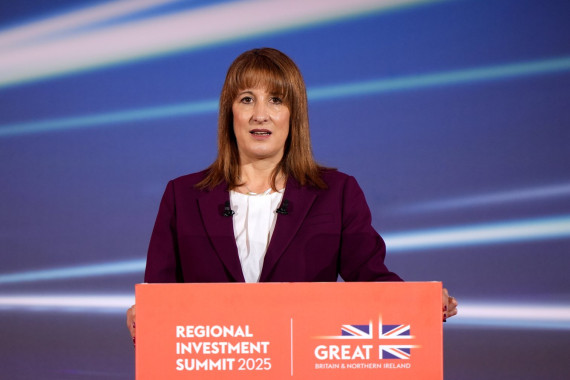
The hidden agenda behind Labour’s desperate efforts to woo big business
Posted: 28th October 2025
FEATURED STORY
The hidden agenda behind Labour’s desperate efforts to woo big business
It’s no secret that Keir Starmer, Rachel Reeves, and the rest of the Labour cabinet have been captured by corporate interests.
Health secretary Wes Streeting has received at least £372,000 in donations from sources with links to private healthcare since 2015, equivalent to around £10,000 per month. The international lobbying and PR firm FGS Global, which is owned by the private equity firm that pulled out of buying Thames Water in June, sent a member of staff to work in Reeves’ office during the election campaign. And the party has received over £1m in donations from firms tied to the gambling industry in the past two years.
Labour’s links to big business and wealthy donors are concerning in themselves, but we now have direct evidence that they are being used to influence policy.
As openDemocracy reported this week, the party has defanged the Competition and Markets Authority, the regulator responsible for enforcing competition law, to appease business interests – at the expense of consumers.
Will you help defend democracy?
- Keep openDemocracy free to read for everyone
- Provide our team with the support they need to work safely in a dangerous world
- Deliver the reporting that matters to you – and that reaches as many people as possible
The government’s deregulatory efforts began back in January, when it ousted Marcus Bokkerink as the CMA’s chair and replaced him with Doug Gurr, Amazon’s former UK boss. Appointing a former executive of one of the world’s most powerful monopolies as the head of a competition authority is so on the nose it defies satire; unions referred to the move as a “slap in the face”.
If this wasn’t enough, the business secretary, Jonathan Reynolds, instructed Gurr to deliver “pro-business decisions” in the role. The message from Labour is clear: we will not stand in the way of anti-competitive behaviour, regardless of the impact on people and planet.
Then, in May, the government issued a new “strategic steer to the CMA”, ordering the watchdog to prioritise “growth and investment” – a barely veiled instruction to wave through mergers and acquisitions that consolidate corporate power.
And just this week, the Financial Times reported that the chancellor plans to pursue a “blitz on bureaucracy” at the CMA by changing the way it reviews anti-competition investigations, which would likely make it easier for ministers to nudge outcomes in favour of big business. The move may come from Reeves, but its intellectual and political architect is reportedly Varun Chandra, one of Starmer’s most powerful advisers.
Chandra is a former managing partner at Hakluyt, the shadowy corporate intelligence firm founded by ex-MI6 officers, which counts among its clients many of the world’s biggest corporations and private equity funds. He retains a multimillion-pound stake in the company and deep relationships across the City and Silicon Valley. In government, he has pushed for a “pro-growth” deregulatory agenda.
This is how corporate capture works in the Labour Party today. There is a revolving door between corporate boardrooms and the highest offices of state. Ministers fall over themselves in their desperate attempts to gain the approval of the City and the Confederation of British Industry, an influential business lobby group. The party has demonstrated it is willing to take donations and gifts from almost anyone, and that it will happily return the favour by amending legislation or cutting regulation.
Ulterior motives
This corporate capture is, in part, a structural problem.
The state is not some neutral tool that political parties can pick up and use as they wish when they enter power. As Marxist theorist Nicos Poulantzas argued back in the 1970s, it is a social relation: a set of institutions that crystallise the balance of class power in society. In capitalist societies, capital is both better resourced and more organised than labour, and this imbalance of power is reflected within state institutions.
When a party severs its links with the working-class organisations that once anchored it in social struggle – from trade unions, to protest movements, to community organisers – it doesn’t float above class conflict; instead, it must fill the gap left by the mass base by deepening its links to capital. This reorganisation of the relationship between party and base is exactly what’s happened to Starmer’s Labour. Absent a mass movement capable of holding politicians to account, his government takes its cues from the boardroom rather than workers and communities.
But there’s also a more cynical dynamic at play, too. Everyone knows this government’s days are numbered, including Starmer himself. Nigel Farage’s Reform UK has cannibalised the Conservative Party and is now tearing ahead in the polls. Labour was probably hoping to rely on haranguing its disgruntled left-wing voters over the need to stop the rise of Reform, but with Starmer increasingly echoing Farage’s talking points, the Greens now seem like a more natural home for those people.
In short, Labour is toast – and it knows it. Ministers and advisers are already looking beyond government to the well-paid, cushy corporate positions they all want to take up when they leave office.
For the Tories who lost their seats at the last election, this transition was pretty easy thanks to the long-standing links between their party and big business and finance. Labour politicians have had to work harder to cultivate strong relationships with the private sector. In this context, the push for ‘pro-business’ policies isn’t just ideological – it’s personal.

